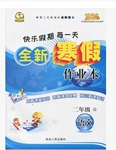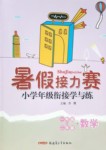题目内容
听一段材料,完成下面小题。
1.What did the man do yesterday?
A.He cut a tree.
B.He planted a tree.
C.He bought some apples.
2.Who will take the branches away from the street?
A.The man.
B.A tree company.
C.The city garbage service,
3.What does the man suggest about the woman?
A.She shouldn't eat the apples.
B.She should take some responsibility.
C.She should move out of the neighborhood.
4.What does the woman threaten to do?
A.Call the police.
B.Put the branches in his yard.
C.Charge the man some money.
练习册系列答案
 桃李文化快乐暑假武汉出版社系列答案
桃李文化快乐暑假武汉出版社系列答案 优秀生快乐假期每一天全新寒假作业本系列答案
优秀生快乐假期每一天全新寒假作业本系列答案 暑假接力赛新疆青少年出版社系列答案
暑假接力赛新疆青少年出版社系列答案
相关题目

